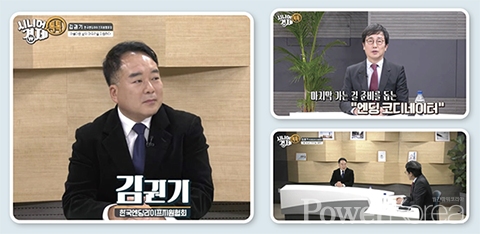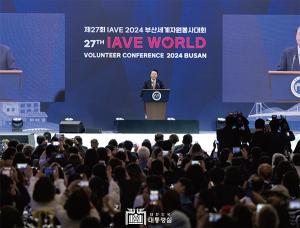 |
||
Last month, EBC’s Senior Economy Talk, which highlights various social issues of the centenarians, interviewed Korea Ending Life Support Association President Kwonki Kim. Kim gave in-depth advice on the role of an end-of-life coordinator and its culture. Monthly PowerKorea would like to share this interview with you as it is relevant to rapidly aging society in South Korea now.
EBC: End of life coordinator seems to imply someone who organizes the end of life, but what exactly do they do?
Kim: I’ve been in the funeral business for about 20 years, and I’ve come into contact with lives on the brink of death often. I came to think that in order to have a good death, there must be a good life. And I realized that it would be a good death if someone solved the problems that needed to be solved before death. For example, when you go to the hospital, there are hospital coordinators. The end-of-life coordinator talks to the person who is dying, listens to what they need, and solves it.
 |
EBC: Does it include funeral, financial, estate planning, bereavement counseling, pet care, and grief therapy?
Kim: Yes, it is. There are a surprising number of fights in funeral homes, for example, over inheritance, which is a clear reason to organize your affairs before you die. Nowadays, especially with the rise of single-person households, many people have pets, and it’s possible that they may die first or that their pet may pass away first. Many people experience Ross syndrome after such a separation. Bereavement counseling is also a concept of healing for Ross, healing after the funeral. All of these things come together to create a good ending.
EBC: What does it take to become an end-of-life coordinator?
Kim: Certification is awarded after completion of the course and a score of 70 or higher on the exam. The certification course consists of 36 hours and includes field training. Some of the programs are about wills, inheritance, trusts, nursing homes, bereavement counseling, death preparation, and makeup for the deceased. Makeup is a very satisfying program, because the last imprint of the deceased is one that stays with the survivors for a long time.
 |
EBC: In Japan, more and more people are organizing their own funerals, what do you think?
Kim: Nowadays, we live in the age of centenarians, and if you die at 100, chief mourner will be a little over 70 years old, and there won’t be many people coming to your funeral. Japan is an ultra-elderly society before us, so people don’t want to put the burden on someone else. That’s why there are services that allow you to designate someone to mourn for you and take care of your funeral if you don’t have children.
EBC: Who are the people who want to be end-of-life coordinators?
Kim: They are a diverse bunch. After completing the certification, they work with a wide range of know-how in addition to their existing jobs. In Japan, most insurance planners want to have such certifications. Currently, we are preparing to operate a professionalized pre-need funeral planning team like Japan.
 |
EBC: What is ending culture you are referring to?
Kim: Ending culture is thought to be the proliferation of healthy endings and the coexistence of life and death. Is our life a life from birth to death or a life after death? Most people think it is before death, but there is dignity even after death. Life can be approached differently if we learn to accept death. We run Ending Life Cafes and a book reading club where we listen to the elderly talk about their lives, ask questions, and get advice.
EBC: Give us an advice or two regarding a good ending.
Kim: A good death comes from a good life. For example, the most common story I hear at funerals is the last message, “I wanted to say something so badly, but I never got to say it. Dad, I love you.” Why should we say it that late? I think it’s a good death if you can somehow restore the relationship you had when you were still full of life. I want people to embrace death and not be afraid of it. It’s a part of life. We just go a little earlier or stay a little longer. I want us to be a society that fully accepts and prepares for endings.
지윤석 기자 jsong_ps13@naver.com







